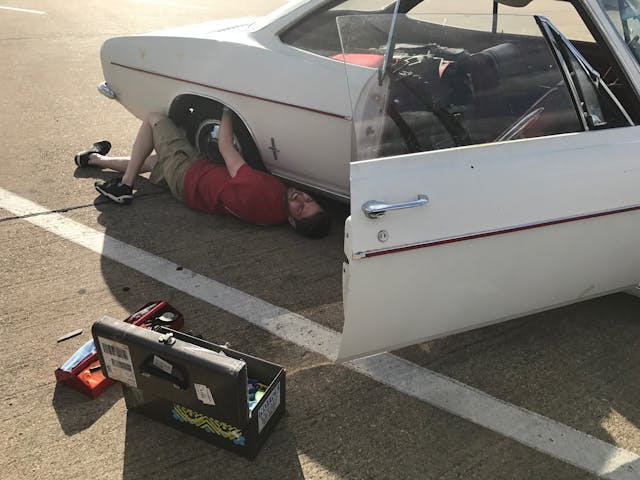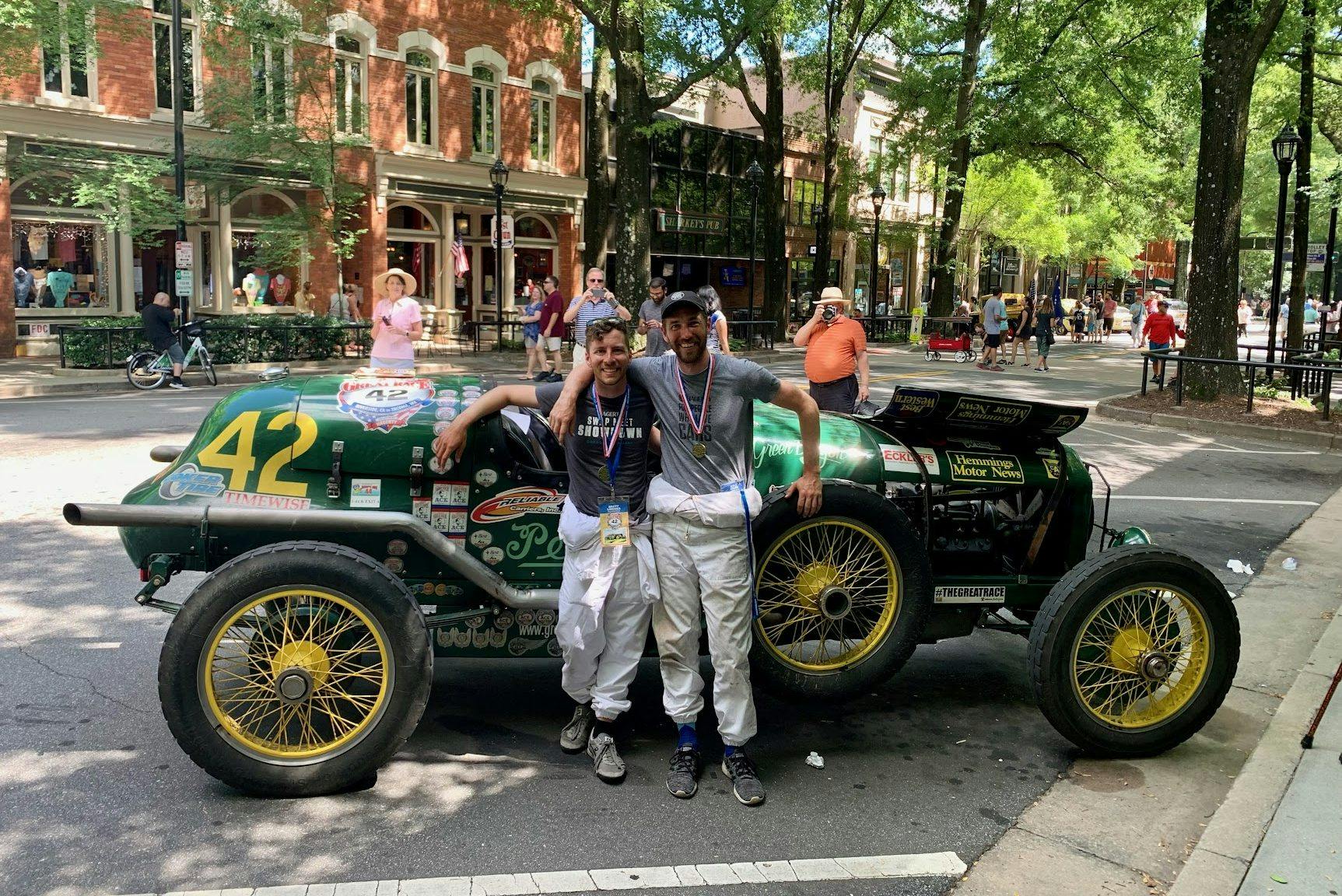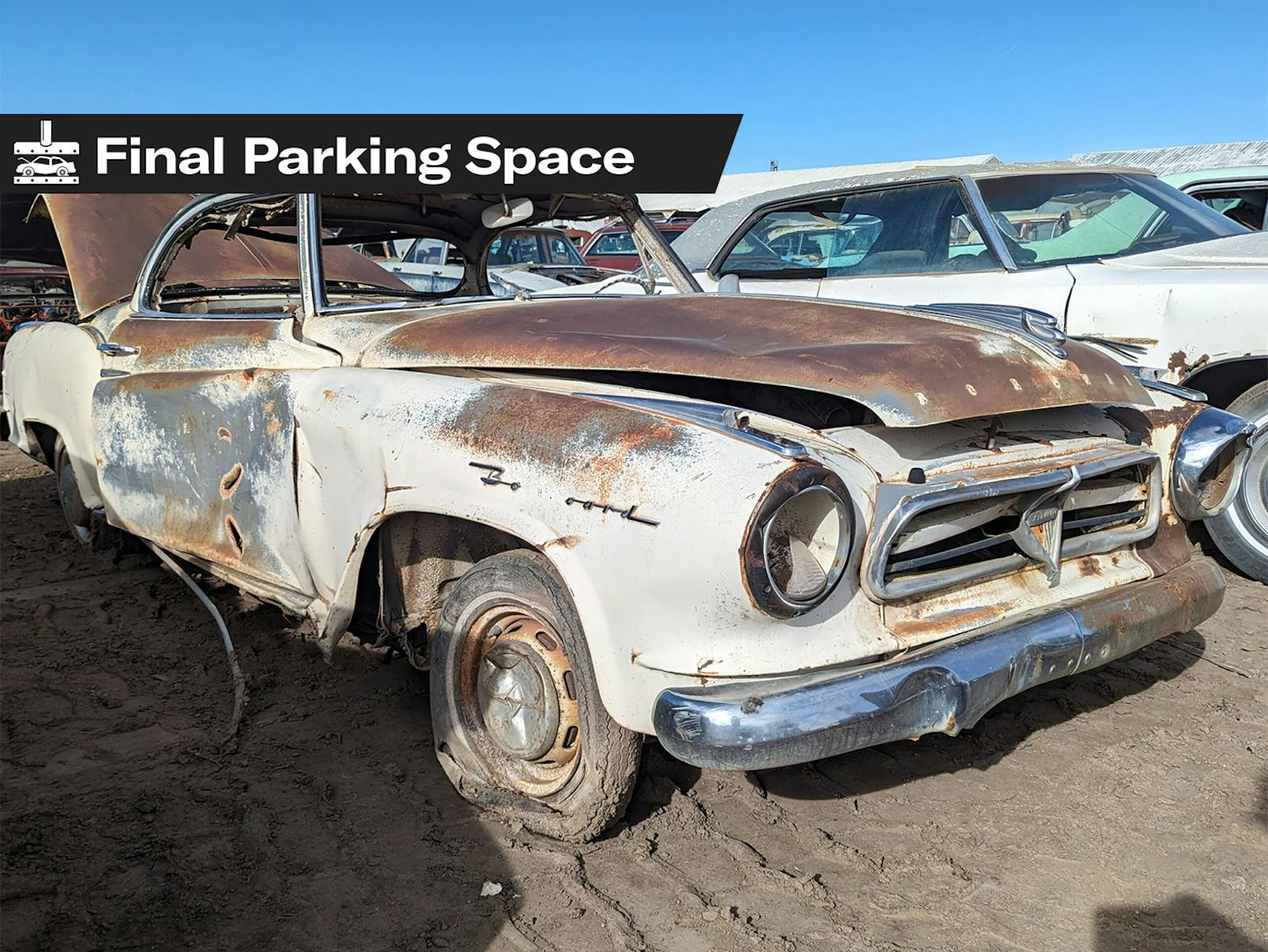Welcome to Mechanical Sympathy

Hey there. I’m Kyle. My presence on these digital pages is not new, but this column is. I’m a former runner, B-grade cyclist, musician of the annoying variety, married man, caretaker to three cats, and step parent of four chickens. My property has a humble but hardworking 2.5-car garage that I try my best to keep clean and functional while working on a collection that seems to constantly spiral out of control and retreat to manageable.

That collection currently spans 85 years of technology, which means it’s no surprise that something always needs attention. Mechanical brakes to suspension tuning and everything in between, I do as much as possible myself. Sometimes I do call in for help or borrow some machinery. Don’t we all?
You name the adventure, and I’ve probably done at least something related to it. Cross-country, time-speed-distance rallies in a 1917 Peerless Speedster to hot laps in a 2021 Porsche Cayman GT4. Preparing and showing a 1951 Pegaso Z-102 (not mine) at the Amelia Island Concours d’Elegance in Florida to orchestrating a rally of ratty cars around California’s swanky Monterey peninsula. Riding the canyon roads of California on a wide range of motorcycles to crossing Michigan’s Mackinaw Bridge on a decrepit Honda Goldwing. I hold a novice race license. Whatever roadside repair you can imagine, I’ve probably attempted it. And succeeded.
The breadth of my experience has taught me one thing: You can’t do much if you don’t care for the machine. I didn’t grow up watching racing or reading the instrumented tests typical of automotive magazines 10 to 20 years ago. Sure, I flipped through a few, but consider the buff books background noise in my origin story.
It was working on things that really occupied my time back then. Understanding the mechanics of how something functioned—rather than its performance potential—became the anchor of my universe. A stack of push mowers my father picked up from the side of the road taught me the mechanics of an engine and how the bits and pieces inside interacted. Maybe the can of a cold beverage I drank in my own garage last night was made from the recycled aluminum of a Briggs and Stratton that met its sad end at the hands of a 12-year-old armed with a half-rusty socket set, a carpenter’s hammer, and curiosity. Only taken apart, never reassembled.
Those magazine tests might have been background noise, but the line between noise and subliminal messaging is thin. For a young person who was yet to slide into the driver’s seat, those driving impressions, quarter-mile times, and 0-to-60-mph stats defined performance. Instrumented testing is a fascinating process that requires a well-prepared car and a good driver who won’t hesitate to flog the devil out of said vehicle. To achieve the impressive numbers—a 0-to-60 run, as an example—the driver must launch the car mercilessly with near-total disregard for the life or wellbeing of the driveline components. That driver has to have zero mechanical sympathy. None.

That’s not me. It never was.
When the kind lady behind the DMV counter handed over the still-warm slip of paper granting me legal access to the Kansas highways and byways, it only made sense that my travel was done with great care for my white Ford Ranger pickup. As the operator of a machine, I was also its caretaker. It was right around this time that racing and high-performance driving entered my worldview, and it didn’t take long for me to observe the sports’ seemingly endless appetites for broken parts and cars. My desire to drive fast and do burnouts faded when I thought about piston speed and valve control.
That mindset was reinforced while sitting in the class rooms and working in the shop at McPherson College, where I earned my bachelor of science in automotive restoration. I sold that beloved 2004 Ford Ranger, deciding instead to keep a 1992 Toyota pickup alive as long as possible. Luckily, that mission only required oil changes and a mid-winter, parking-lot rebuild of the rear axle after the pinion bearings turned to shrapnel. That 22RE engine and five-speed manual transmission did everything I asked of them, from hauling motorcycles to a night of test-and-tune drag racing. I still think if I had the stones to sidestep the clutch on that starting line I would have snuck into the 17-second range. The thought of harm done to clutch and rear axle was too much, though. I couldn’t do that to them.

That’s a feeling some have and some don’t. For humans to put themselves in the “shoes” of a literal cog in a machine is patently absurd, yet that is how my mind works. Sympathy is defined as a feeling of pity or sorrow for the suffering or distress of another. Mechanical sympathy requires more than maintenance. It’s doing the mental work to understand how the machine works best and then basing your care and feeding on that. How do the parts interact? What is the best way to treat this both living but also inanimate object? This column will explore the ways we interact with machines, both in upkeep and use, and how those stir the soul.
A while back, one of my superiors here at Hagerty asked where I saw myself in five years. After thinking for a moment, I realized my truth: I’m here to do fun things and tell good stories. That’s what this column will be. Let’s take an adventure week-by-week. I’m excited about this one. Hope you are too.





My Grampa used to say “take care of your stuff and it’ll take care of you”; and I still have some of his things that, at 100 years of age, still operate flawlessly. I tend to my street vehicles in that same fashion. But as counterpoint, I also came to understand that the race cars, to fulfill their purpose, needed to be regarded as mostly comprised of consumable items: the care being applied in preparation for using them to their limits. I have a small collection of the resulting mechanical carnage…
Kyle,
I enjoyed your writing of articles and glad you are getting a regular gig. I also like the fact that you own one of the most interesting cars to come out of Detroit, your Corvair (I own a Rampside). BTW, off topic, did you ever hook up your choke pull-offs on your carbs. I saw your you tube video
Hey Bob! Thanks for the kind words, they are greatly appreciated. I did get my choke properly connected and functioning this spring and an really enjoying it honestly. One pump of th epedal and it pops right to high idle and comes down appropriately. Only issue is I have no lower shrouds due to my header and exhaust setup so the bimetal coils of the choke don’t get the heat they are designed for so they take longer than they should to fully release. Not the worst thing, and I plan to modify a set of lower shrouds this winter to not only make the choke work properly but also try and make the heater work. Have other problems to figure out there though.
Although I’m building a car right now just to beat on like it owes me money, I still have the concern for how much abuse is too much.
In my job I build tools for a living. I get to see how they’re supposed to work and how they fail when people abuse them. Understanding the mechanics of how ANYTHING works leads to a better appreciation of it.
I’ve never heard mention of mechanical empathy, but I certainly share it. I pat my two Studebakers on their hoods each morning on the way to my Mazda daily driver. I want them to know their days will come again. I don’t currently have a garage and would need to learn what to do in it if I did. Will it be too late to attend McPherson when I retire in a few years? I’ve long admired that program and my family roots are in Kansas.